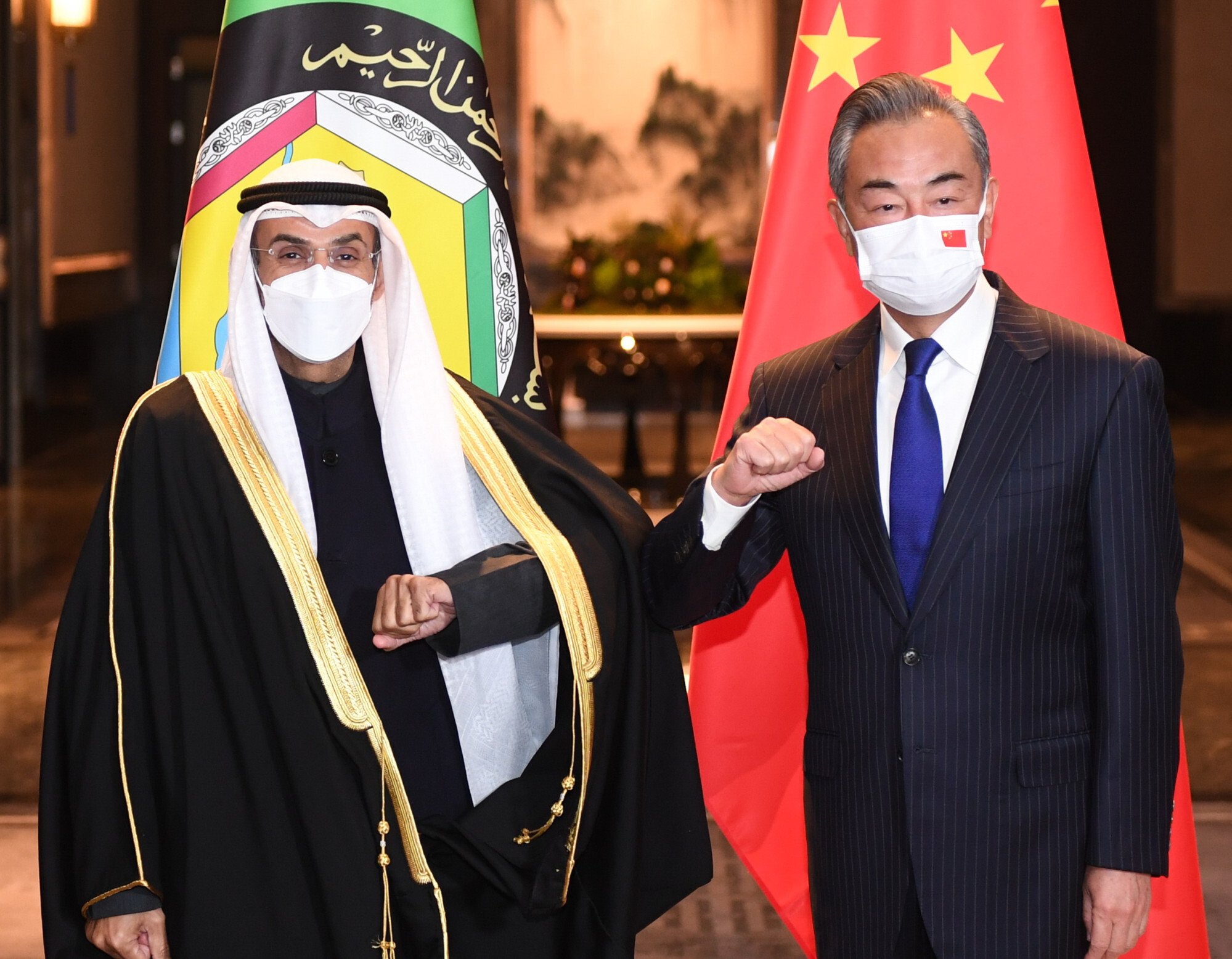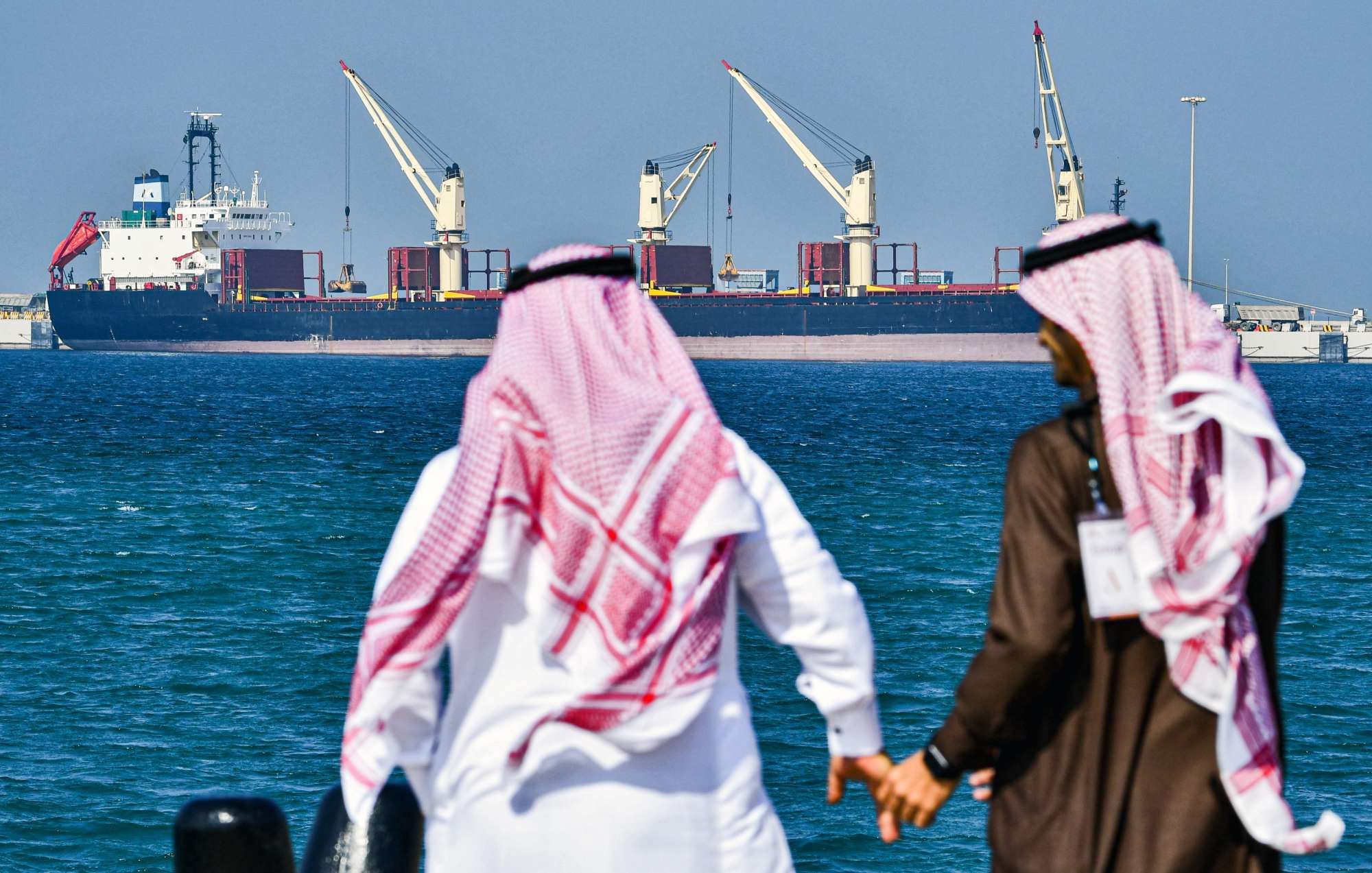China’s meetings with Middle East ministers sets the scene for Beijing to step up in region
This week, China will host representatives from Persian Gulf Cooperation Council, Saudi Arabia, Kuwait, Oman, Bahrain, Iran and Turkey for talks. While China is the region’s biggest trading partner and energy buyer, relations have gone beyond economic ties.
China is positioning itself as a prominent player in the Middle East with a string of meetings promising an upgrade in ties, the sealing of a free-trade agreement and deeper strategic cooperation in a region where US dominance is showing signs of retreat.
The secretary general of the Gulf Cooperation Council (GCC), and foreign ministers from four of its member countries – Saudi Arabia, Kuwait, Oman and Bahrain – are visiting the eastern Chinese city of Wuxi in Jiangsu province this week until Friday.
In addition, Turkish Foreign Minister Mevlut Cavusoglu was expected to visit China on Wednesday and Iranian Foreign Minister Hossein Amir-Abdollahian was expected on Friday.
After Chinese Foreign Minister Wang Yi met GCC secretary general Nayef Falah al-Hajraf on Tuesday evening, China’s foreign ministry said: “Both sides agreed that the conditions for China and the GCC to establish a strategic partnership are ripe, and they will accelerate this process.”

In a joint declaration from the meeting, the two sides agreed to wrap up negotiations on a China-GCC free trade agreement as soon as possible and to speed up the signing of an action plan for strategic dialogue in the next three years.
These issues have long been among China’s efforts to step up its relationship with the energy-rich and strategically important Middle East, a region in which the United States has been a dominant power.
While China is the region’s biggest trading partner and energy buyer, relations have gone beyond economic ties, with comprehensive strategic partnerships with Saudi Arabia, Egypt and the UAE and its involvement in negotiations in Vienna over the Iran nuclear deal.
Meanwhile the US, which withdrew from a nuclear agreement between major powers and Iran in 2018 and pulled back troops from Afghanistan last year, has raised questions over its future security commitments in the wider region.
Beijing has repeatedly said it is not trying to rival or replace the US. However, China has also criticised America’s involvement in the Middle East and blamed it for instability.
In the readouts of Wang’s bilateral meetings with his Persian Gulf country counterparts, Beijing repeatedly praised each country’s support for China’s policies on Taiwan, human rights and Xinjiang, all issues drawing criticism from the US.
Economic matters were also discussed. The Chinese statements said Beijing was willing to cooperate with the Middle Eastern countries on matters ranging from agriculture, energy and e-commerce to law enforcement and archaeological projects.

On Wednesday, Wang met Kuwaiti Foreign Minister Sheikh Ahmed Nasser Al-Mohammed Al-Sabah who agreed to boost cooperation with China on 5G development and backed Beijing’s hosting of the Winter Olympics next month. The West has applied pressure on China over both issues.
Wang Jin, an associate professor at the Institute of Middle East Studies at China’s Northwest University, said Persian Gulf states welcomed closer ties with China, which he said reflected Beijing’s “sincerity” about further cooperation, despite American wariness of China’s growth in the region.
“The development plans of the Persian Gulf Arab countries boil down to changing their dependence on energy and strengthening economic diversification. This requires national and international support on the one hand, and industry and technology on the other,” he said.
Turkey and Iran also faced economic pressure, Wang Jin said, with China and Iran involved in bilateral development plans and Turkey under currency pressure. Turkey and China will discuss financial and infrastructure development.
Wang Jin also said other major topics – including Afghanistan, Kazakhstan and the Iranian nuclear issue – would be mentioned but were not the focus of the visit.
Tuvia Gering, a research fellow at the Jerusalem Institute for Strategy and Security said these countries’ willingness to institutionalise cooperation with China showed that China-Middle East cooperation would be long term.
However, he also said China was a means to getting US attention.
“[Middle East countries] are tired of great power competition, and they want the competition to have a positive effect.”
Zeno Leoni, an affiliate to the Lau China Institute at King’s College London, said China needed the backing of these countries from the Middle East and North Africa (MENA) region because they did not question China’s domestic affairs.
“The fact that diplomats from the GCC, Iran and Turkey will be there all at the same time, might be for China to emphasise that it values each of its relations with each regional power.
“The need to have diplomats from most MENA countries is also for China to prepare the ground [for] upcoming Iran nuclear deal negotiations, and to ensure countries like Iran and Saudi Arabia will accept a compromise,” Leoni said, adding that he expected Iran would seek China’s help to accelerate nuclear negotiations.
In Wang’s meetings with Bahraini and Saudi ministers on Monday and Tuesday, the parties exchanged views on the Iran nuclear talks, the ministry said.
end item*
* Kinling Lo is a China reporter covering diplomacy and society news for the Post. She joined the team in 2016 as a cadet reporter.
* Ben joined the Post as an intern reporter focusing on foreign affairs. He is a graduate student at Hong Kong Baptist University. Before coming to Hong Kong, he worked as an intern at Caixin in Beijing.

 QR code
QR code
